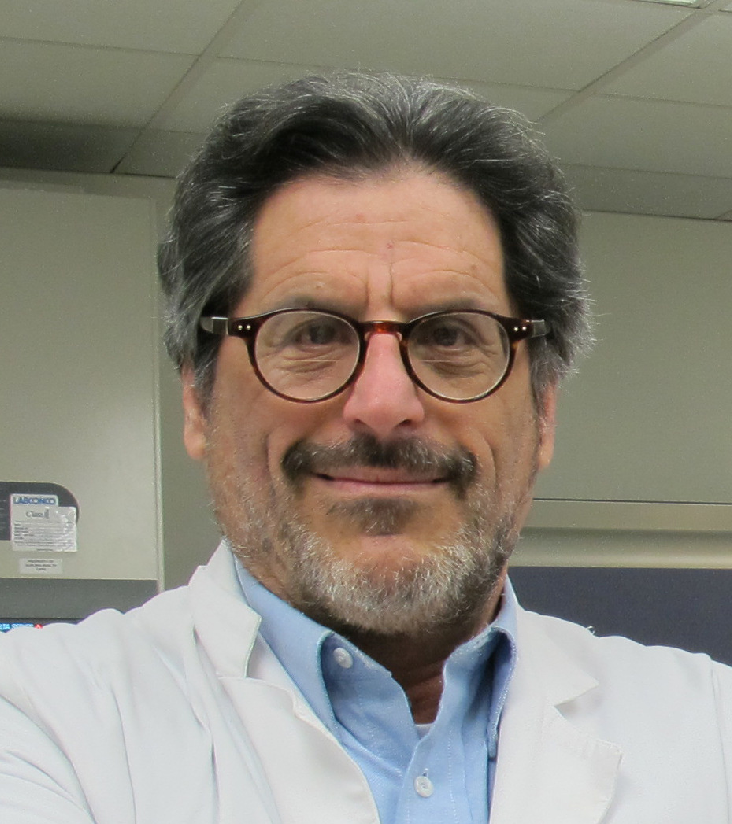
Hershel Raff, PhD, FAAAS, FAPS
Professor, Medicine, Physiology and Surgery
Locations
- HRC 4150
Contact Information
General Interests
Education
University of California-San Francisco, Postdoctoral Fellowship in Endocrinology
Biography
Specialties
Adrenal, Stress, Cushing’s syndrome, Adrenal Insufficiency
Secondary Appointments
- Physiology and Surgery in the MCW School of Medicine
- MCW School of Pharmacy
- Biomedical Sciences, Marquette University
Hershel Raff is professor of medicine in the division of Endocrinology and Molecular Medicine and also a professor in the MCW Pharmacy School. He holds secondary appointments in the Departments of Physiology and Surgery. He received a BA in Music from Union College in Schenectady, NY. He earned his PhD in Environmental Physiology from the Johns Hopkins University Bloomberg School of Public Health. He was a postdoctoral fellow in Endocrinology at the University of California, San Francisco (UCSF). Dr. Raff came to MCW in 1983 as an assistant professor and rose to the rank of professor in 1991. He is also an adjunct professor in Biomedical Sciences at Marquette University.
Leadership Positions
External
- Associate Editor of Endocrinology
- UpToDate Author/Editor for Clinical Laboratory Testing – Hypothalamic-Pituitary Adrenal Function
- Editorial Board, Journal of the Endocrine Society
- Faculty Opinions (Faculty of 1000), Physiology, Head of the Endocrinology Section
MCW Internal
- Advancing a Healthier Wisconsin Endowment (AHW) Merit Reviewer
- 2022 We Care Fund Scientific Review Committee, Department of Surgery, Medical College of Wisconsin, Reviewer
- Course Director, Medical Student Endocrinology/Reproduction Unit
- Course Director, Introduction to Organ Systems Physiology for Graduate Students
- Faculty Advisor, Medical Student Assembly
- Clinical and Translation Science Institute of Southeast Wisconsin (CTSI), CTSI
- Scientific Review Oversight Committee
- Medical School Nominating Committee
- Medical School Curriculum and Evaluation Committee (CEC)
- Graduate Studies Council Course Evaluation Committee
- Graduate Studies Council - Rank Committee
Research Interests
Dr. Raff’s basic research focuses on the hypothalamic-pituitary-adrenal axis and the short-and long-term consequences of neonatal stress and therapeutics. His translational research focuses on the interaction of obesity and pain in human adolescents. His clinical research focuses on the development of diagnostic endocrine tests and, in particular, using the measurement of salivary cortisol to evaluate the hypothalamic-pituitary-adrenal axis in a variety of human diseases and stress models and the development of cortisol assays to use in ACTH stimulation testing.
Dr. Raff is heavily involved in medical, graduate, pharmacy and undergraduate education. He is Course Director Endocrinology/Reproduction Integrated Course for medical students in their preclinical phase. He teaches first year endocrine physiology to medical and pharmacy students and Endocrine Clinical Fellows. He is the course director of the Introduction to Organ Systems Physiology for first year graduate students. Dr. Raff is the author of two textbooks: Vander’s Human Physiology, an undergraduate textbook, and Medical Physiology: A Systems Approach, a medical student-level textbook. He also teaches Applied and Rehabilitative Systems Physiology at Marquette University College of Health Science. He was an inaugural inductee into the MCW Society of Teaching Scholars in 1991 and was elected to Alpha Omega Alpha as a Faculty Member by the MCW senior medical student class of 2005.
Laboratory Studies
- Evaluating the interaction of neonatal stress and common clinical interventions on the hypothalamic-pituitary-adrenal (HPA) axis and metabolism in an animal model of human prematurity.
- Studying the role of the HPA axis in relapse of opioid addiction in a rat model of sleep disruption.
- Using a newly developed liquid chromatography-tandem mass spectrometry (LC-MS/MS) method to measure salivary cortisol and cortisone in the diagnosis of Cushing’s syndrome.
- Evaluation of the ACTH (cosyntropin) stimulation test for the diagnosis of adrenal insufficiency utilizing new generation cortisol assays.
- Measuring serum and salivary biomarkers in patients with mild traumatic brain injury and obesity.
Publications
-
(Town MR, Raff H, Timpe J.) Wilderness Environ Med. 2026 Mar;37(1_suppl):91S-96S PMID: 41493981 SCOPUS ID: 2-s2.0-105026714008 01/06/2026
-
(Bhasin-Chhabra B, Wang T, Levine JE, Shenoy S, Perales MA, Bashey A, Raff H, Saber W.) Blood Adv. 2025 Dec 23;9(24):6394-6401 PMID: 40991367 PMCID: PMC12744271 SCOPUS ID: 2-s2.0-105024205412 09/24/2025
-
(Raff H, Hainsworth KR, Cutlan R, Sherman KA, Stemper BD.) Eur J Appl Physiol. 2025 Nov;125(11):3385-3395 PMID: 40512180 SCOPUS ID: 2-s2.0-105007953249 06/13/2025
-
Abnormal Pattern of Spondylosis and Postflight Neck Flexibility in Fifth-Generation Fighter Pilots.
(Stemper BD, Muftuler LT, Cutlan R, Strother C, Sherman KA, Meier TB, Raff H, Yoganandan N, Gerds B, Dooley C, Le P, Hainsworth KR, Vedantam A.) Aerosp Med Hum Perform. 2025 Oct;96(10):884-893 PMID: 41043817 SCOPUS ID: 2-s2.0-105017693987 10/04/2025
-
(Everson CA, Szabo A, Olsen CM, Glaeser BL, Raff H.) Sleep. 2025 Sep 09;48(9) PMID: 40253577 PMCID: PMC12417021 SCOPUS ID: 2-s2.0-105015520801 04/20/2025
-
(Klahr JD, Carroll TB, Nerenz RD, Raff H.) AACE Endocrinol Diabetes. 2025;12(3):198-204 PMID: 41048692 PMCID: PMC12495566 10/06/2025
-
(Klahr JD, Carroll TB, Nerenz RD, Raff H.) AACE Endocrinology and Diabetes. 1 September 2025;12(3):198-204 SCOPUS ID: 2-s2.0-105013586962 09/01/2025
-
(Atkinson SN, Dean C, Woyach VL, Hainsworth KR, Raff H.) Obesities. March 2025;5(1) SCOPUS ID: 2-s2.0-105001398094 03/01/2025
-
(Raff H, Hainsworth KR, Woyach VL, Weihrauch D, Wang X, Dean C.) Am J Physiol Regul Integr Comp Physiol. 2024 Aug 01;327(2):R123-R132 PMID: 38780441 PMCID: PMC11444502 SCOPUS ID: 2-s2.0-85198683818 05/23/2024
-
(DeGroot A, Huber DL, Leddy JJ, Raff H, McCrea MA, Johnson BD, Nelson LD.) PM R. 2024 Aug;16(8):826-835 PMID: 38411367 PMCID: PMC11323219 SCOPUS ID: 2-s2.0-85186544012 02/27/2024
-
(Raff H.) Journal of the Endocrine Society. 1 March 2024;8(3) SCOPUS ID: 2-s2.0-85184025030 03/01/2024
-
A New Approach - Home Waking Salivary Cortisone to Screen for Adrenal Insufficiency.
(Raff H, Zhang CD.) NEJM Evid. 2023 Feb;2(2):EVIDe2200306 PMID: 38320042 02/06/2024

